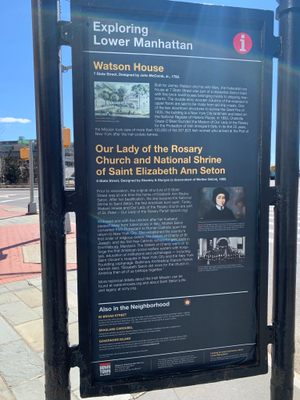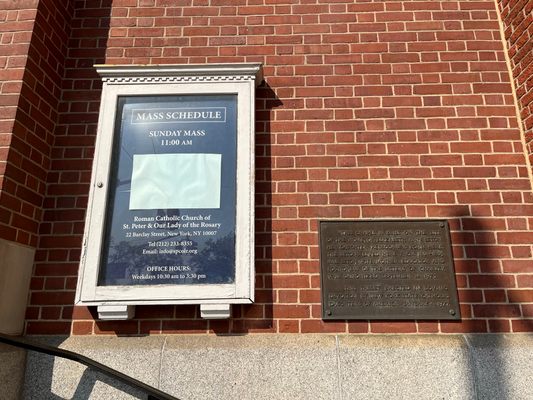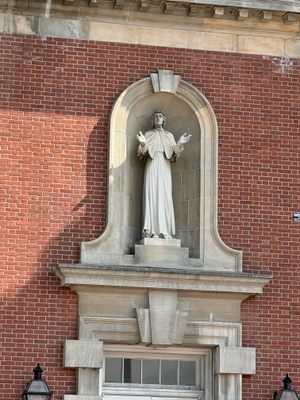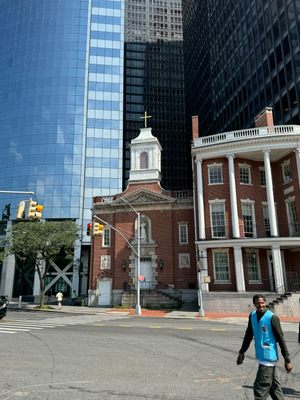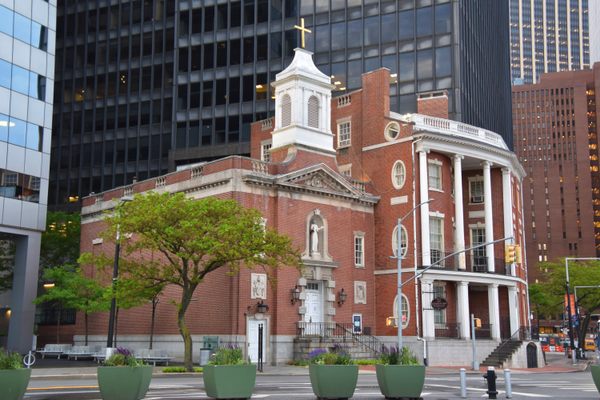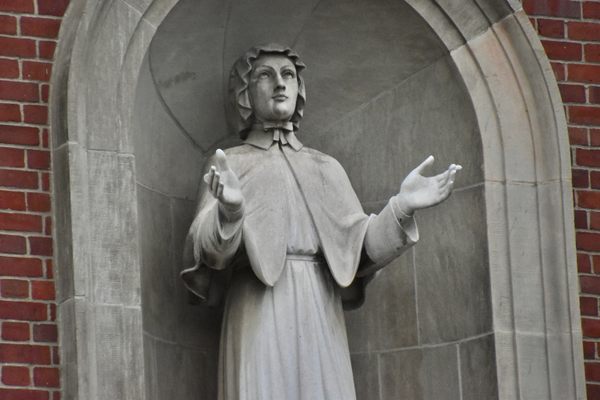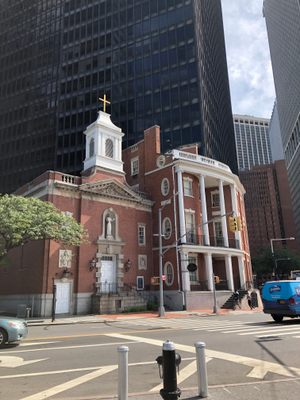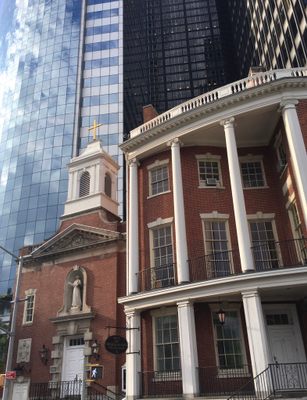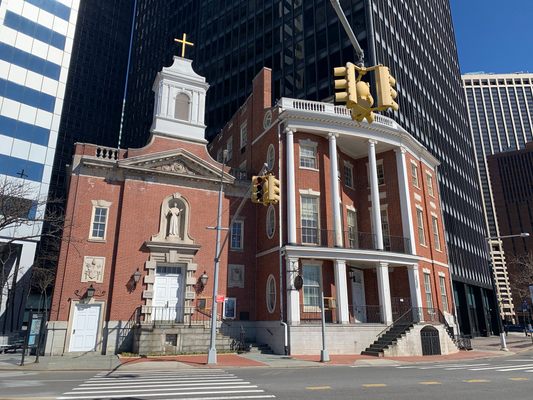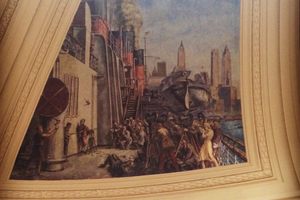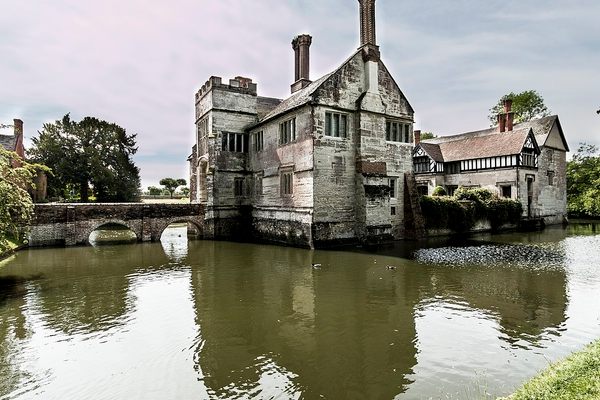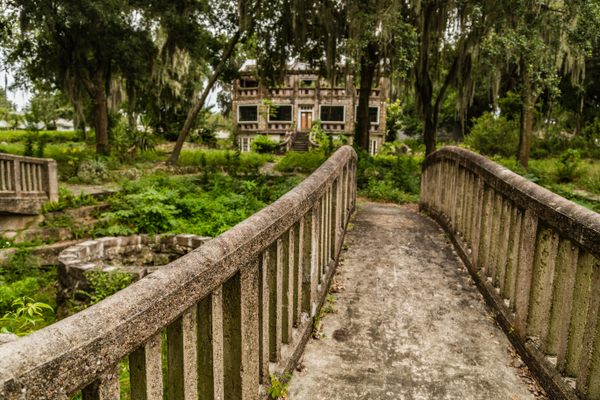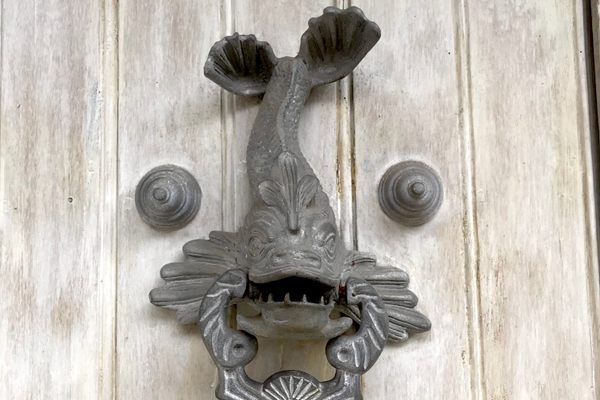About
One of Manhattan's southernmost streets, State Street used to be its most stately. The small street—unusual for New York City, in that it curves, elegantly so, from the South Ferry along Battery Park—was once home to some of the most luxurious mansions in Manhattan, which offered unparalleled views of the harbor.
Today, State Street is home to anonymous, modern skyscrapers, throngs with tourists departing for the Statue of Liberty, and commuters riding the Staten Island Ferry. But tucked away amidst the bustle there is a small remnant of more gentile days: a church and a red brick building that dates from 1793. It is one of the only curved buildings in a city built on straight lines, and one of the only buildings left downtown that survived the Great Fire of 1835.
Beautiful, and mostly passed by, the elegant house is adorned with two double-story columns made from the masts of old merchant ships. It also happens to be a shrine and former home to the first American-born saint, Elizabeth Ann Seton, and serves as the rectory for the next-door church, Our Lady of the Holy Rosary.
St. Elizabeth Seton was born in New York City in 1774. She would go on to found St. Joseph's Academy and Free School, the first free school for Catholic girls in the United States. She dedicated her life to caring for poor children, and also founded the Sisters of Charity, the first order of nuns in the U.S.
Elizabeth Ann Seton was canonized in 1975 by Pope Paul VI, becoming the first American-born citizen to be so. The Pope said of her, "In a house that was very small, but with ample space for charity, she sowed a seed in America which by Divine Grace grew into a large tree." The old house remains one of the most unusual and peaceful to be found in Lower Manhattan.
Related Tags
Community Contributors
Added By
Published
June 5, 2017


